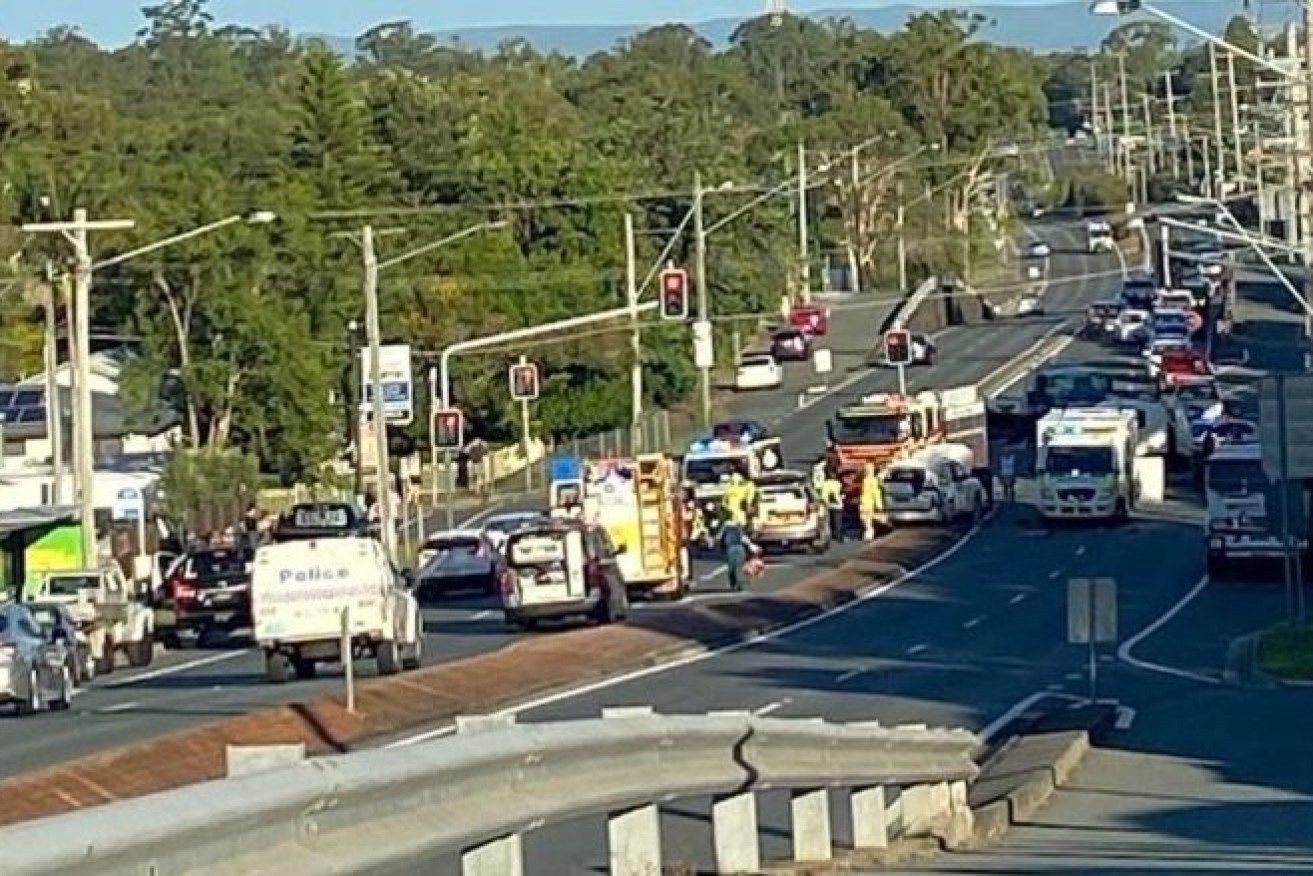GPS trackers to be considered for alleged young offenders
A 2018 proposal for electronic monitoring did not directly relate to people in custody or on bail awaiting judgement, but the Queensland Government will consider it anyway.

Police and emergency services at the fatal crash on Australia Day. (Photo: ABC)
A 17-year-old from Logan, who cannot be identified, has been charged with murder and a string of other offences after the stolen car he was allegedly driving struck and killed Kate Leadbetter, 31, and Matthew Field, 37, at Alexandra Hills on Australia Day.
The accused was on bail for traffic offences at the time and, only months after the state election campaign was punctuated by a youth justice debate, Premier Annastacia Palaszczuk has since promised a crackdown. Bail laws were only changed last year.
The Courier-Mail today reported that the Government was “warned” two years ago that GPS trackers “may help solve its youth justice crisis”. The Queensland Police Union has called for even tougher bail laws, with more alleged offenders placed into custody and GPS trackers for those allowed in the community.
However, the 2018 proposal from former police commissioner Bob Atkinson only called for consideration of such technology in place of youth detention, for example to allow the release of vulnerable children or those with work obligations towards the end of their sentence.
Acting Premier Steven Miles today said 76 of the 77 recommendations from the Atkinson review had been accepted and were in the process of being implemented.
Miles reiterated that the GPS tracking proposal did not strictly relate to bail cases, however if there was evidence it might be of benefit then the government would consider it. He believed government agencies would have considered it.
“All of these technologies are advancing and if and when they become useful we can consider them,” Miles said.
Youth Justice Minister Leanne Linard maintained “everything is on the table” including GPS tracking.
“The youth justice system is a system that requires constant vigilance,” Linard said.
The Atkinson review was heavily focussed on keeping children out of custody where possible and cautioned that GPS tracking would still require some human supervision, in much the same way as corrective services officers monitor sex offenders.
Atkinson declined to comment today.












